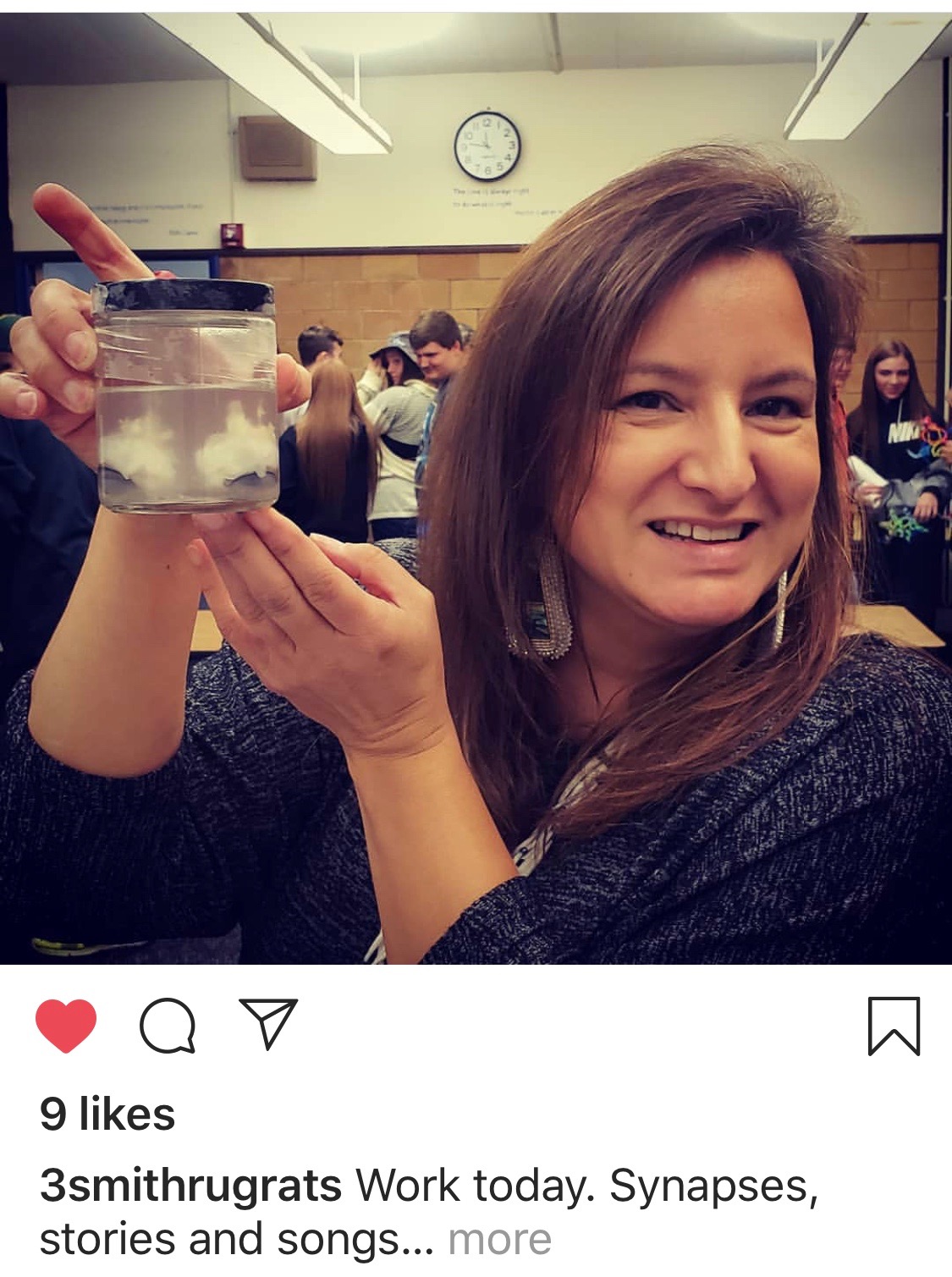
- This event has passed.
Animal Brains & Stories in Siletz!
May 22, 2023 - May 25, 2023
WHAT: Noggin + Siletz Outreach: Animal Brains & Stories
We did it!
Long skinny lightning in Siletz


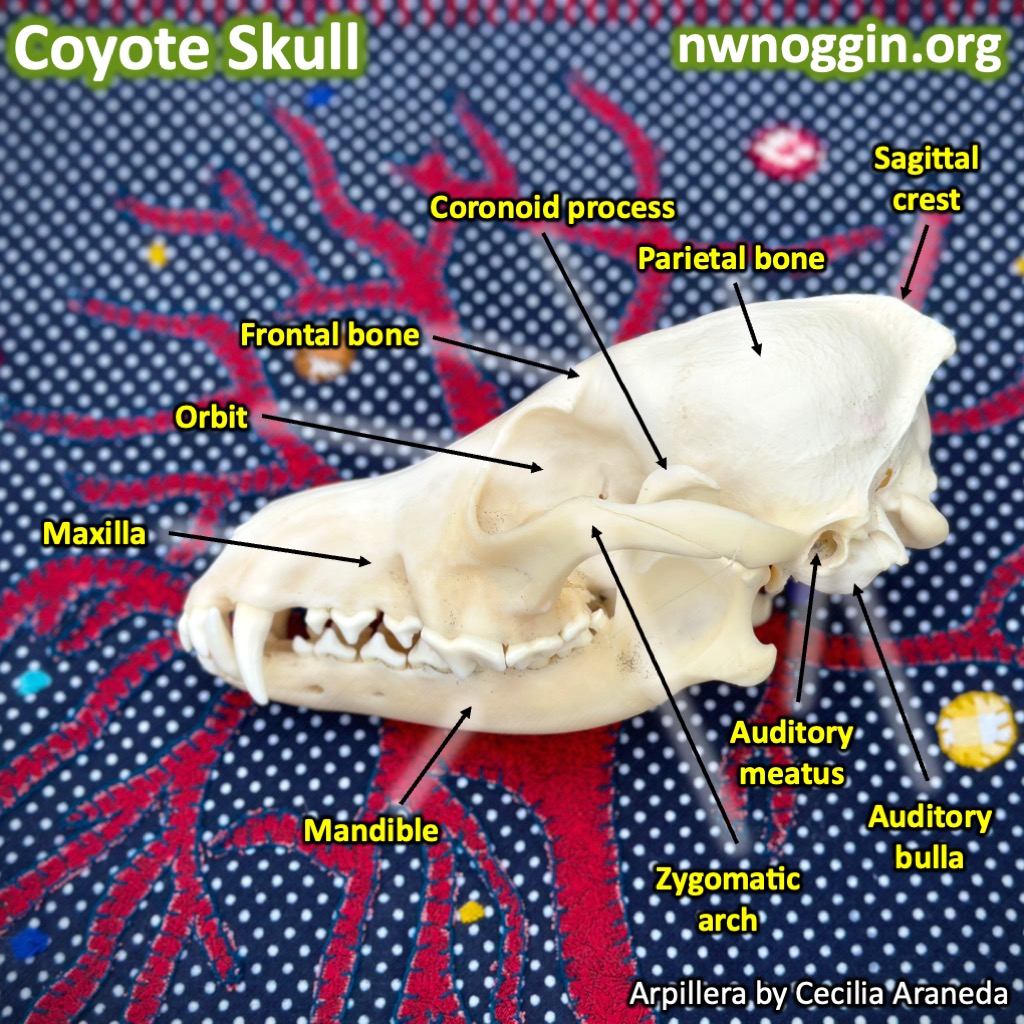
WHERE: Siletz Valley School, 245 NW James Franks Ave, Siletz, OR 97380
WHEN: Tuesday, May 23 – Thursday, May 25, 2023
Arrive @ hotels in Nye Beach, Oregon Monday night (5/22)
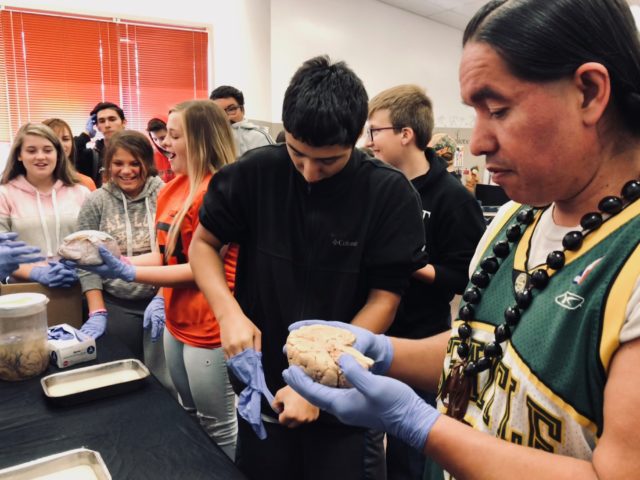
MONDAY, MAY 22
Arrive late in Nye Beach, Oregon
NOTE: Nye Beach is about a 30 minute drive from Siletz!
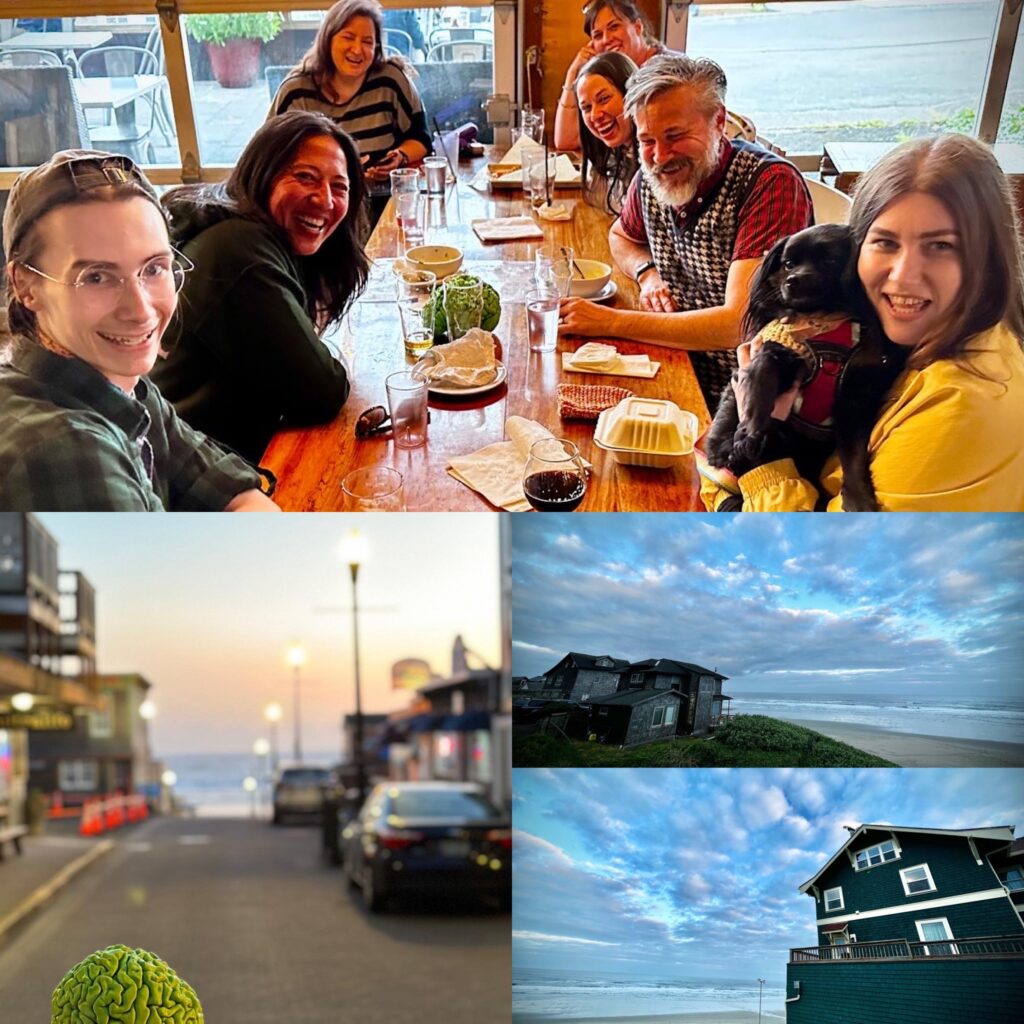
TUESDAY, MAY 23
ARRIVE Siletz School @ 8:15am
Introductions and Assembly!
Elementary School Students, Siletz
FINISH @ 3:20pm
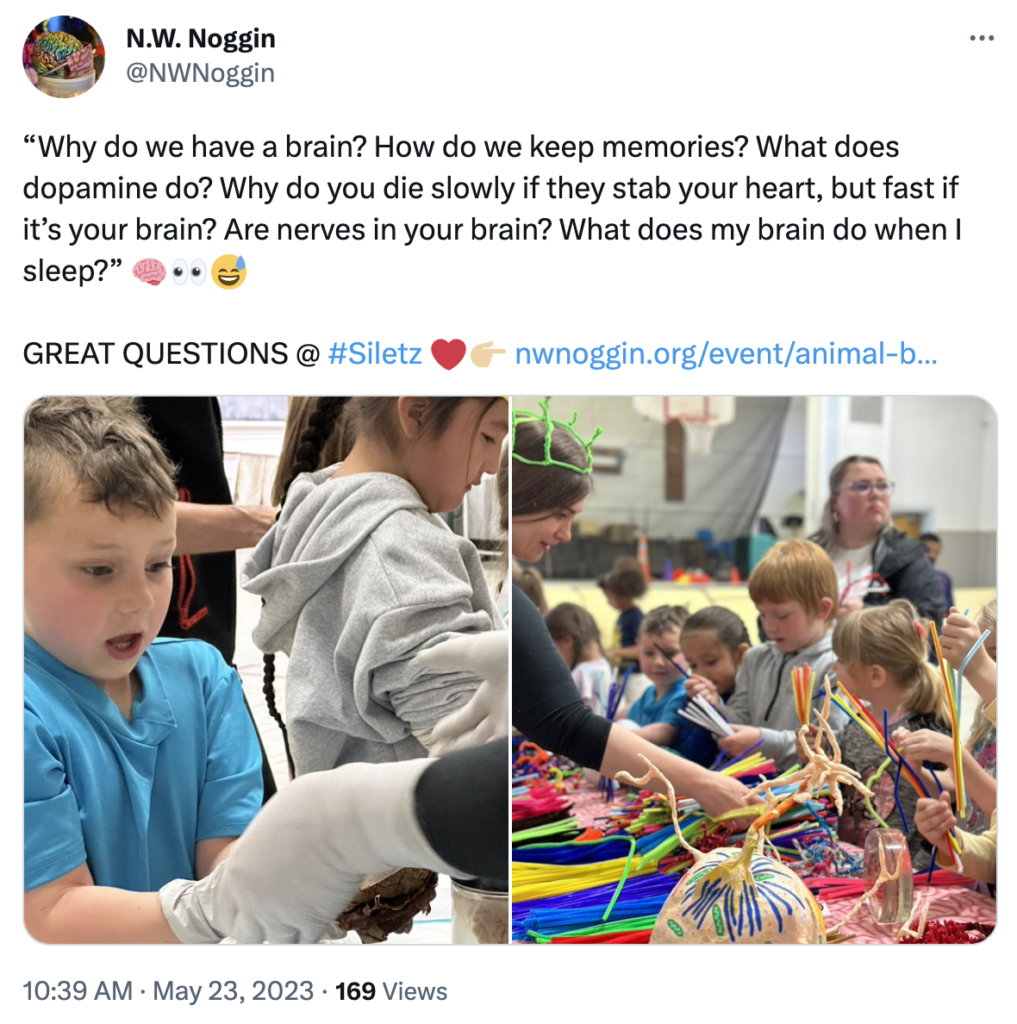
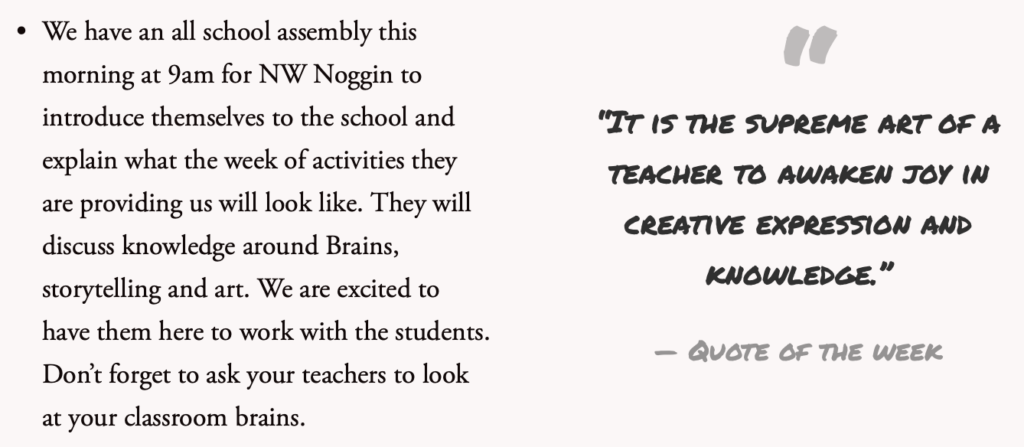
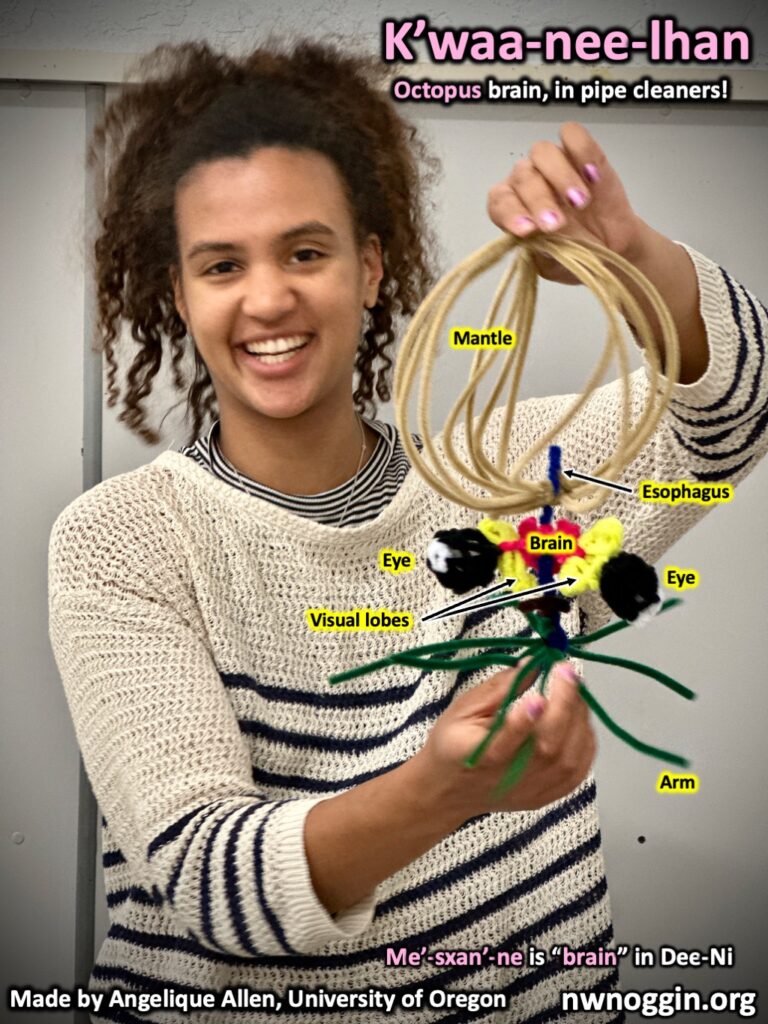
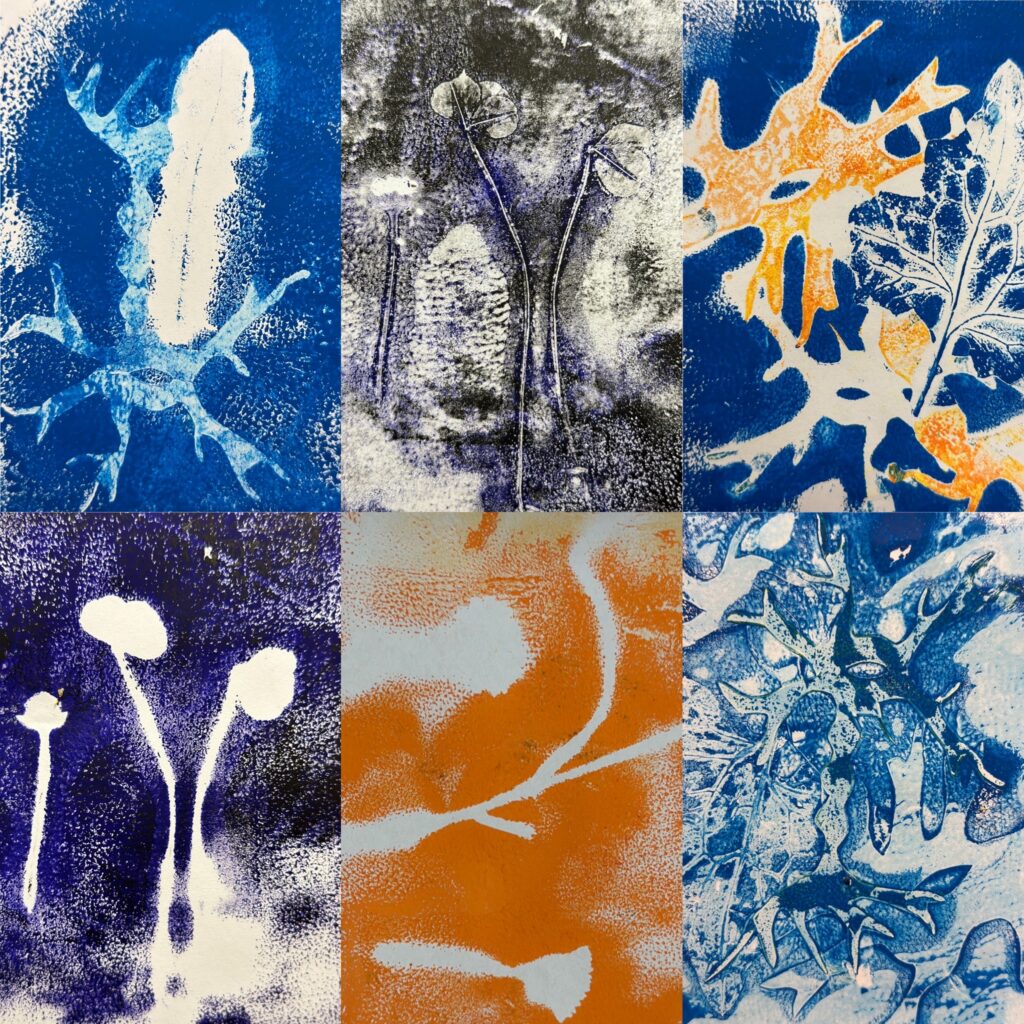
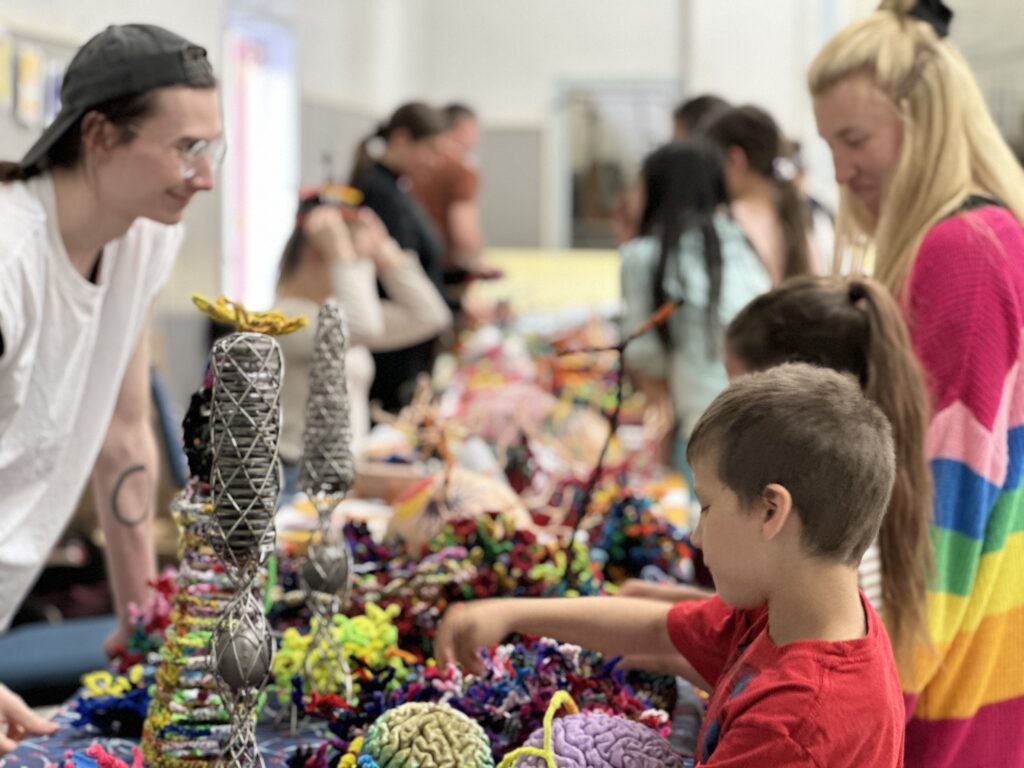


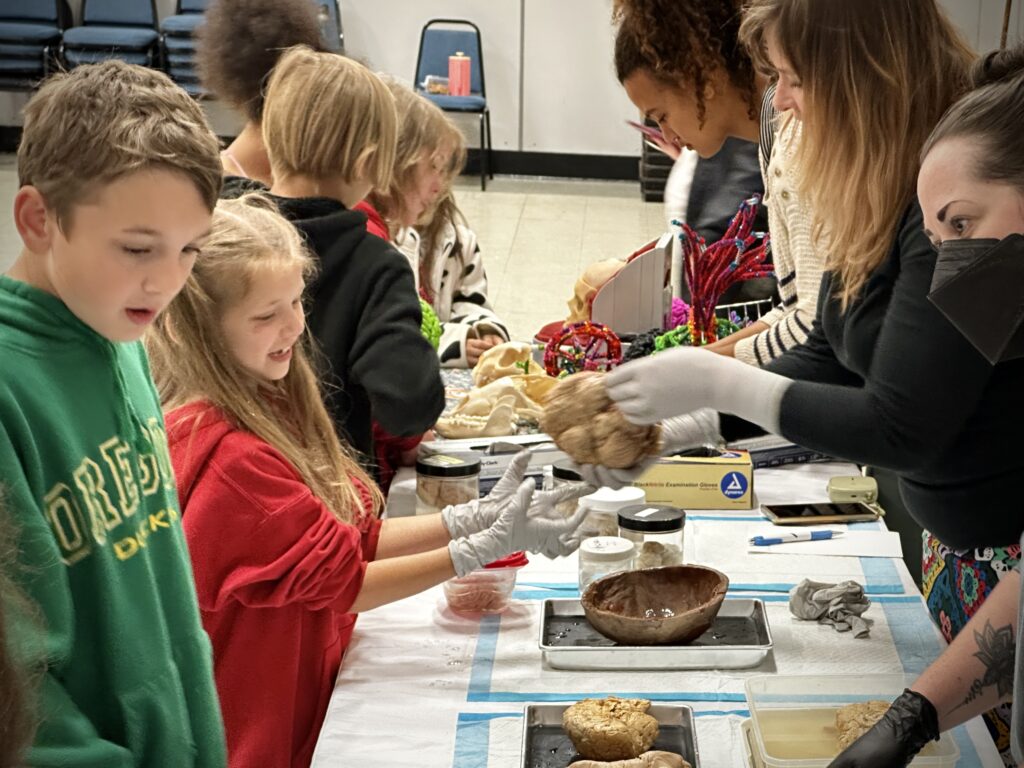
![]()


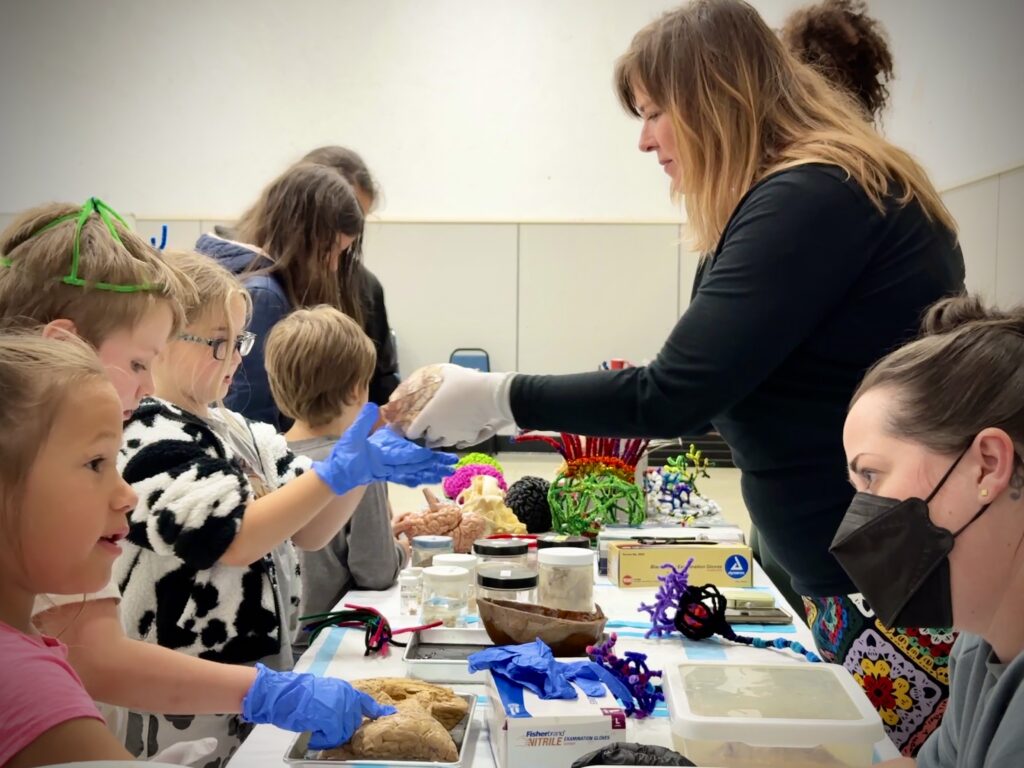
WEDNESDAY, MAY 24
ARRIVE Siletz School @ 11:30am
High School Students, Siletz
FINISH @ 3:20pm

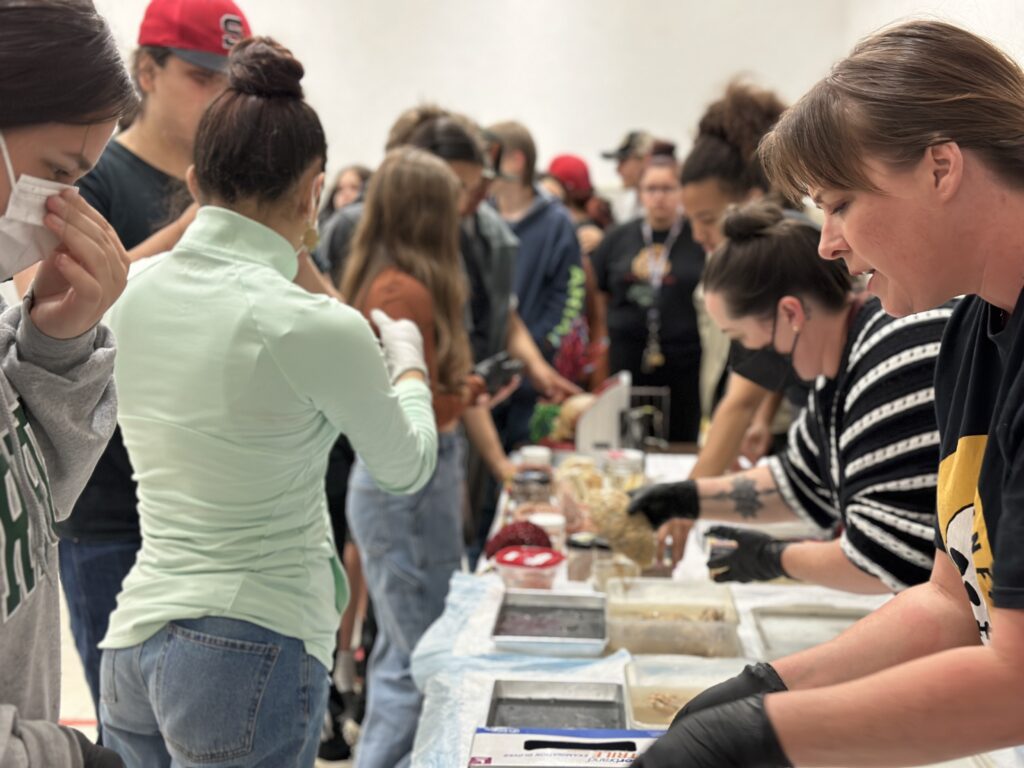
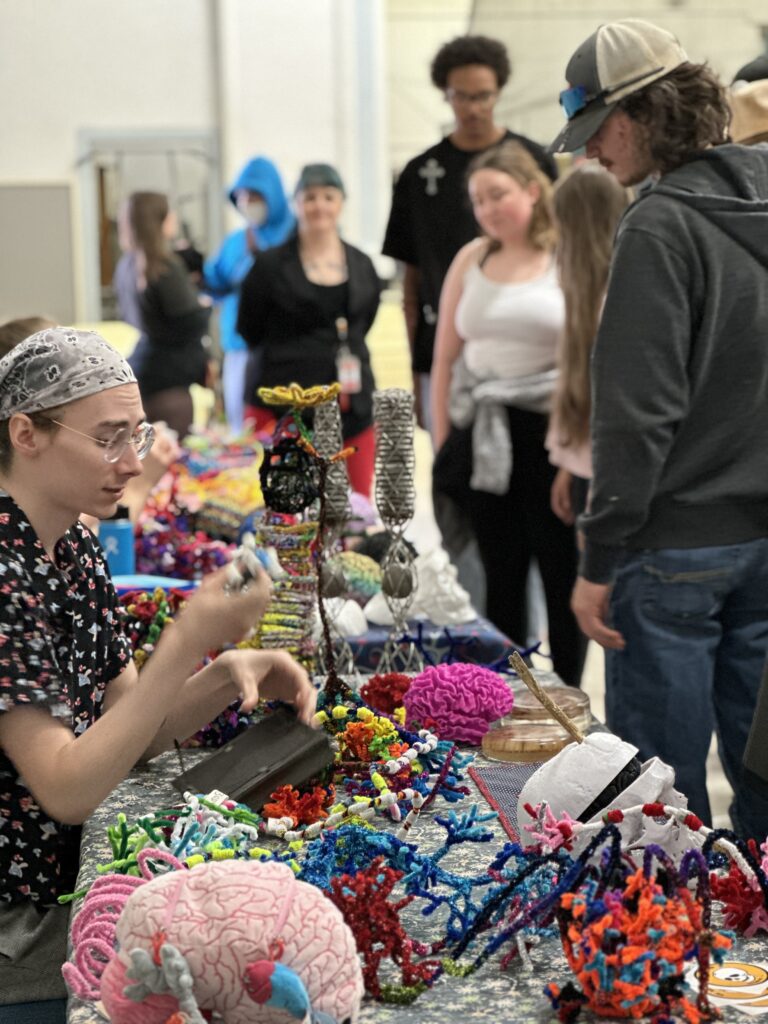

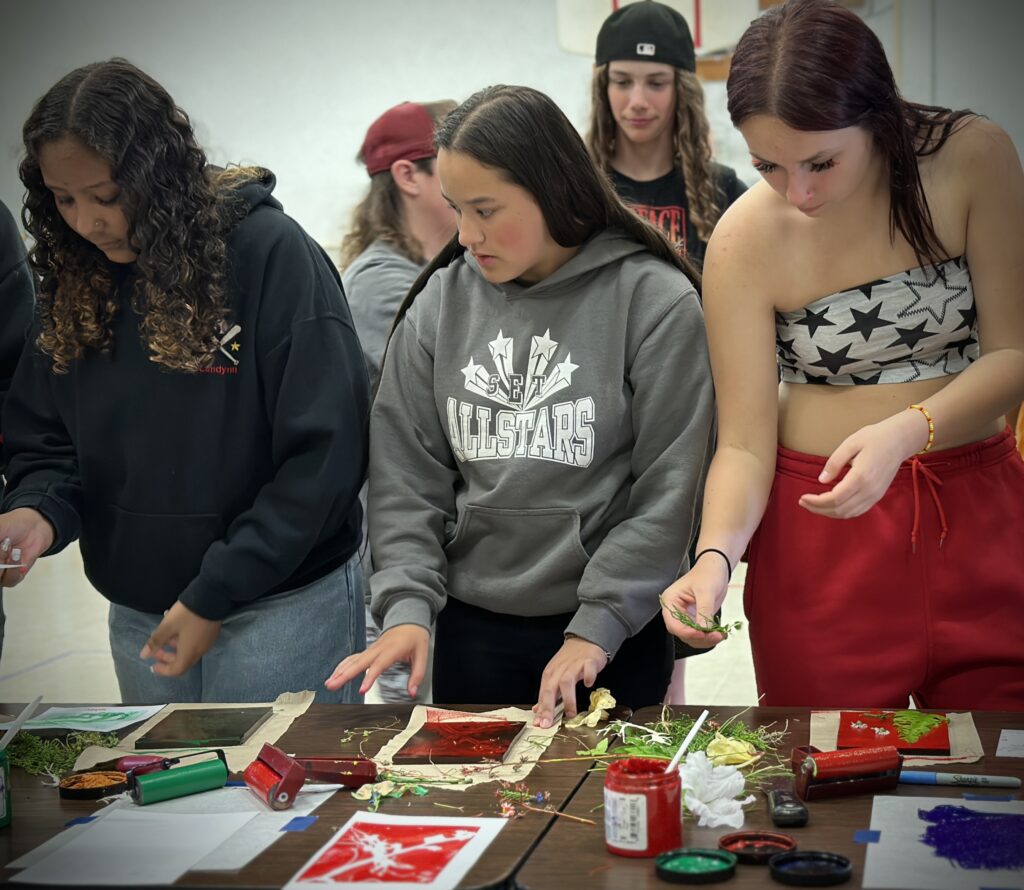
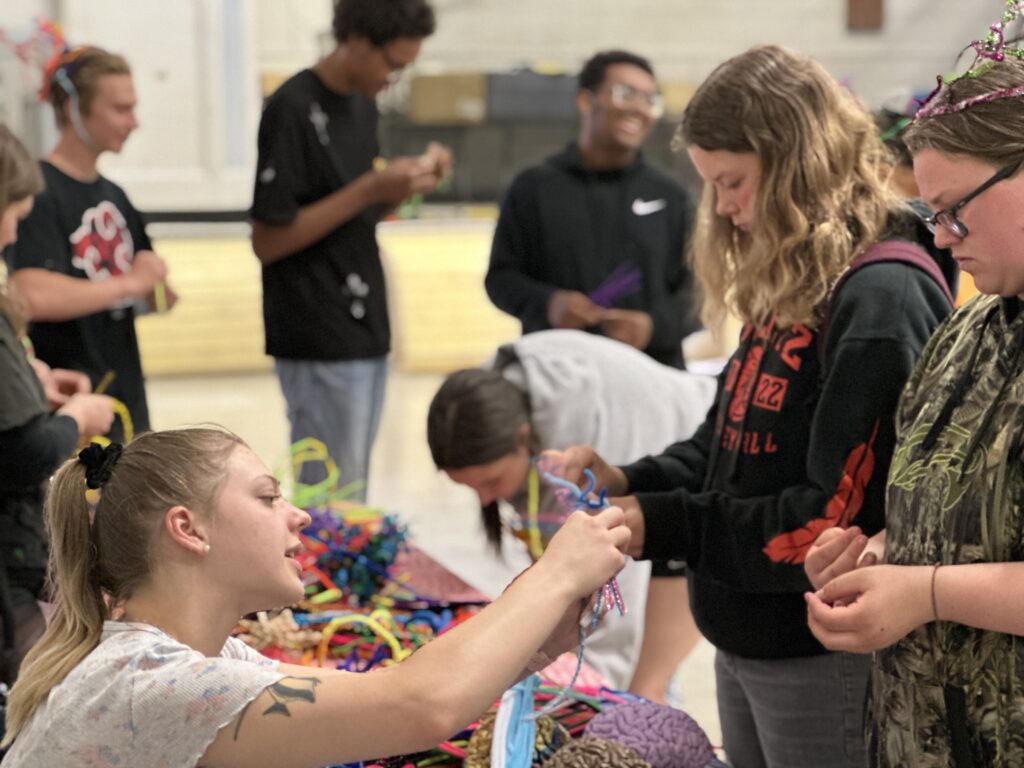
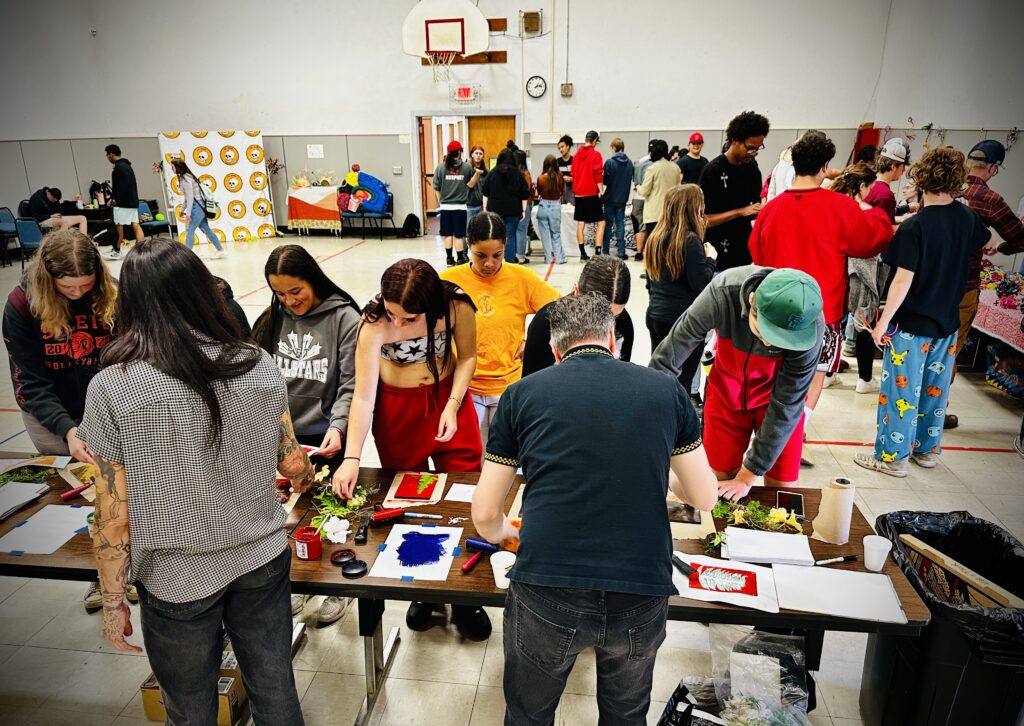
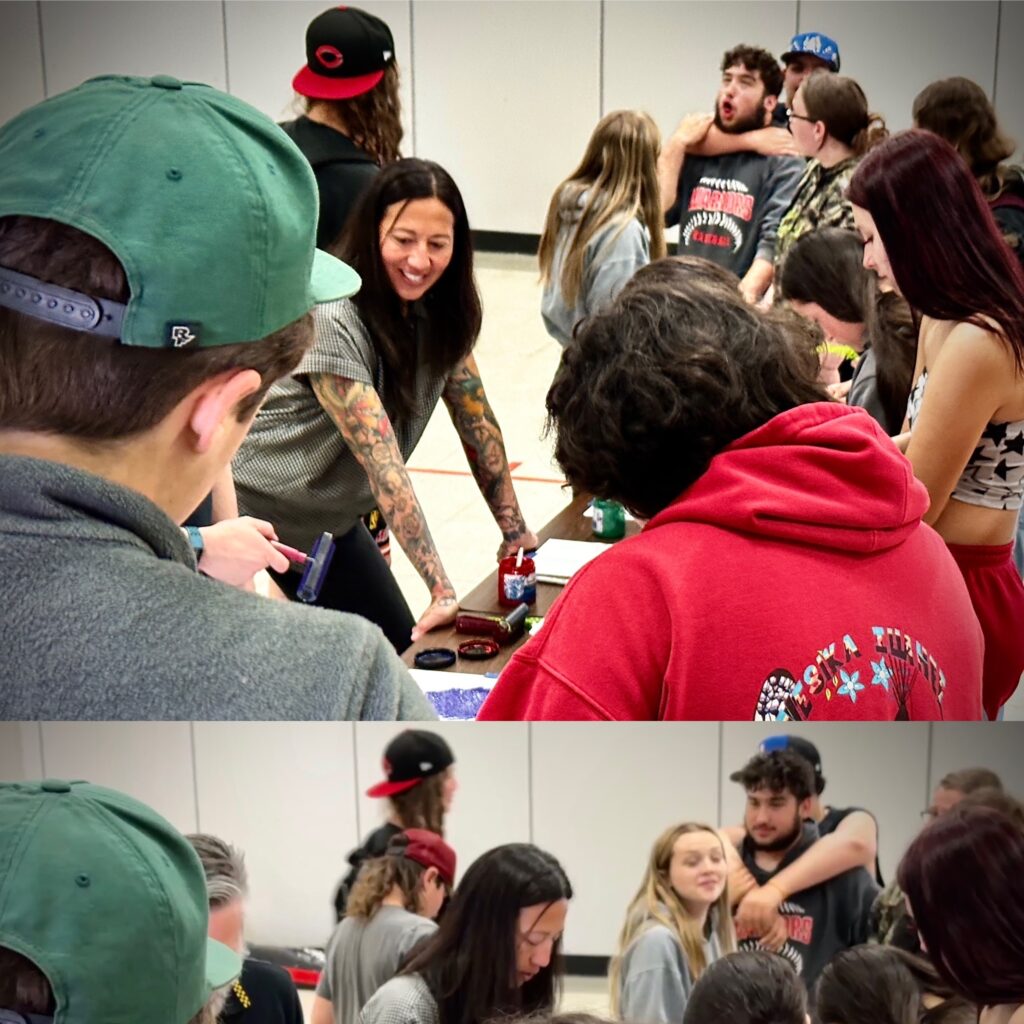
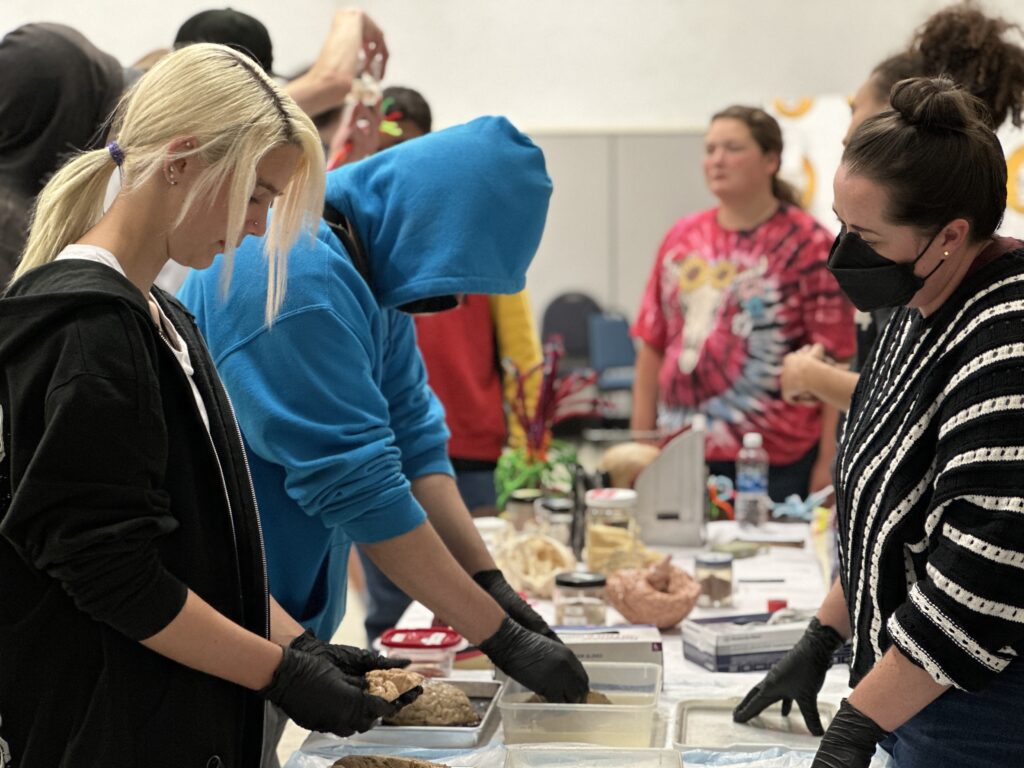
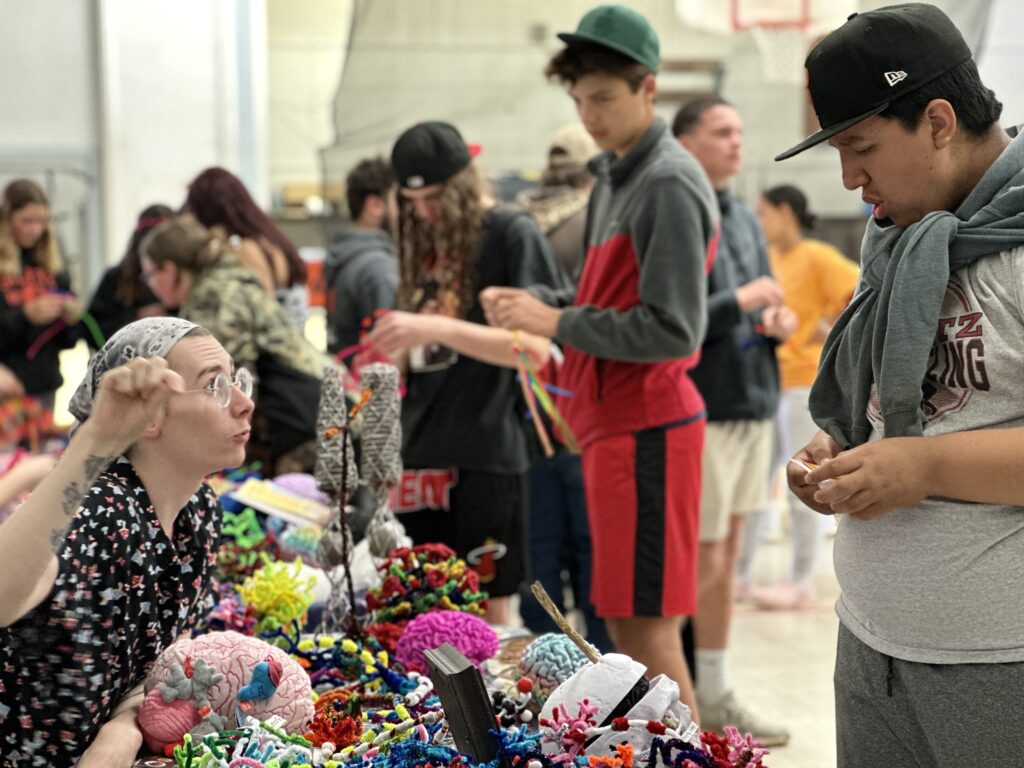
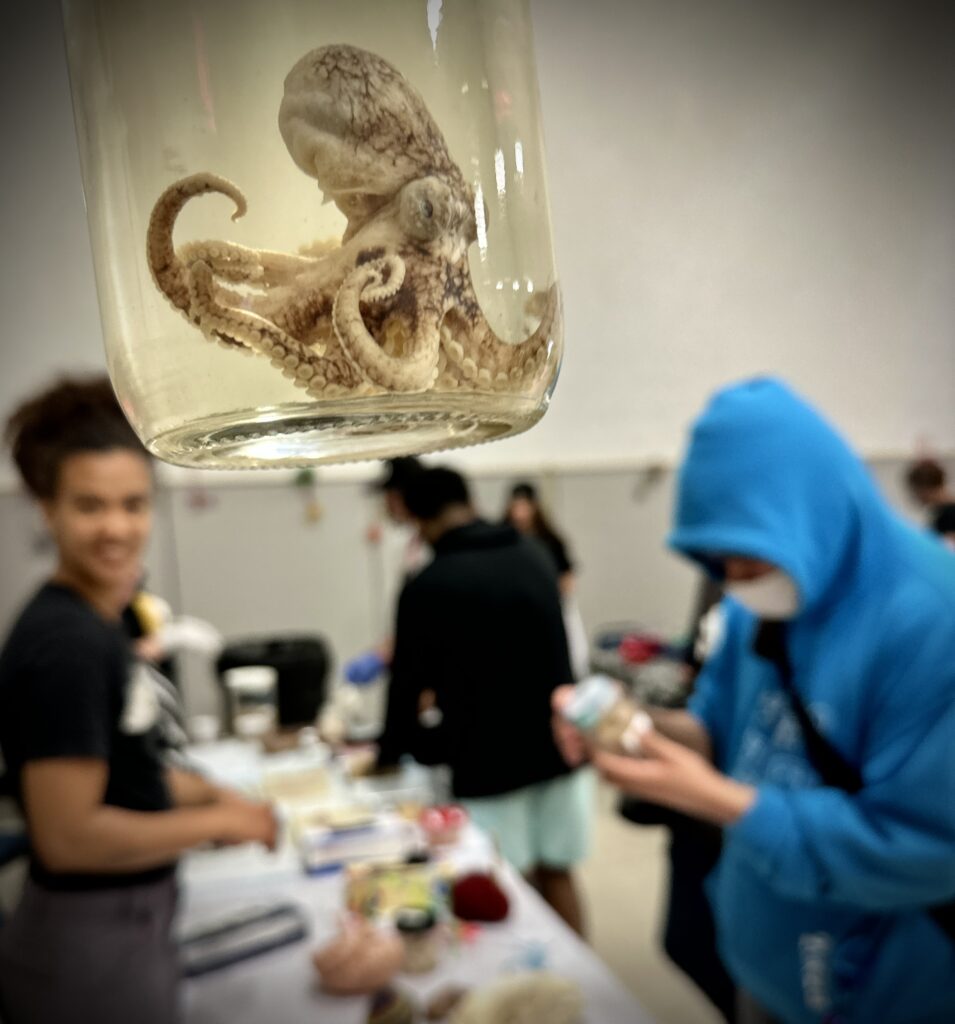


THURSDAY, MAY 25
ARRIVE Siletz School @ 8:15am
Middle School Students, Siletz
FINISH @ noon
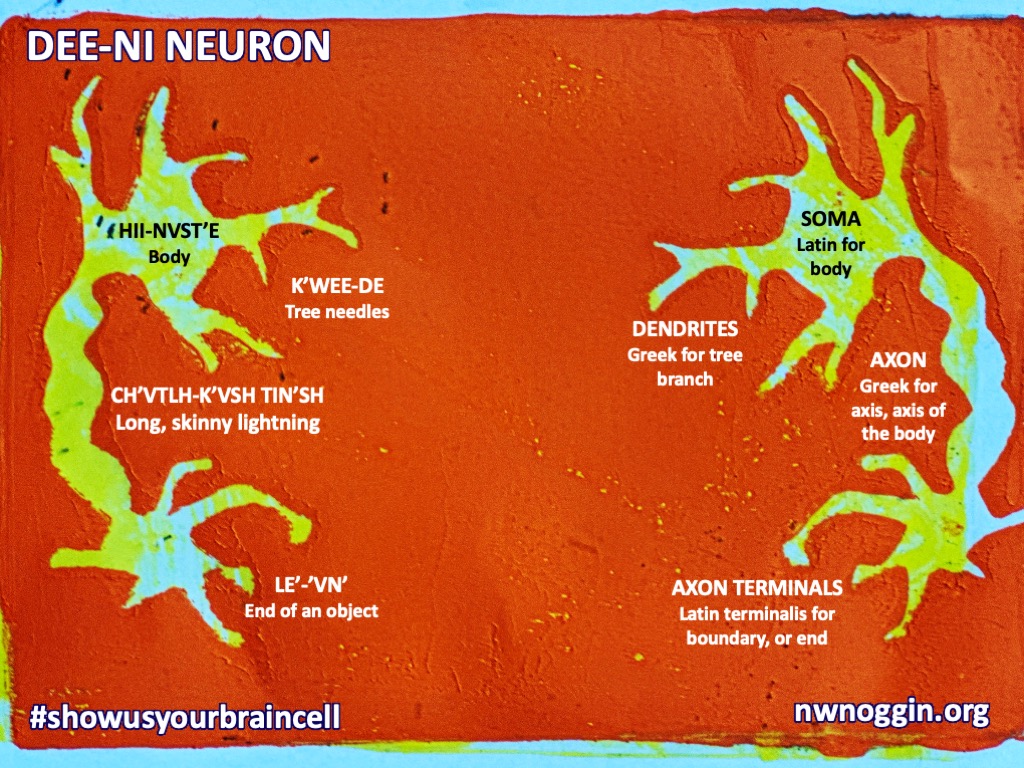
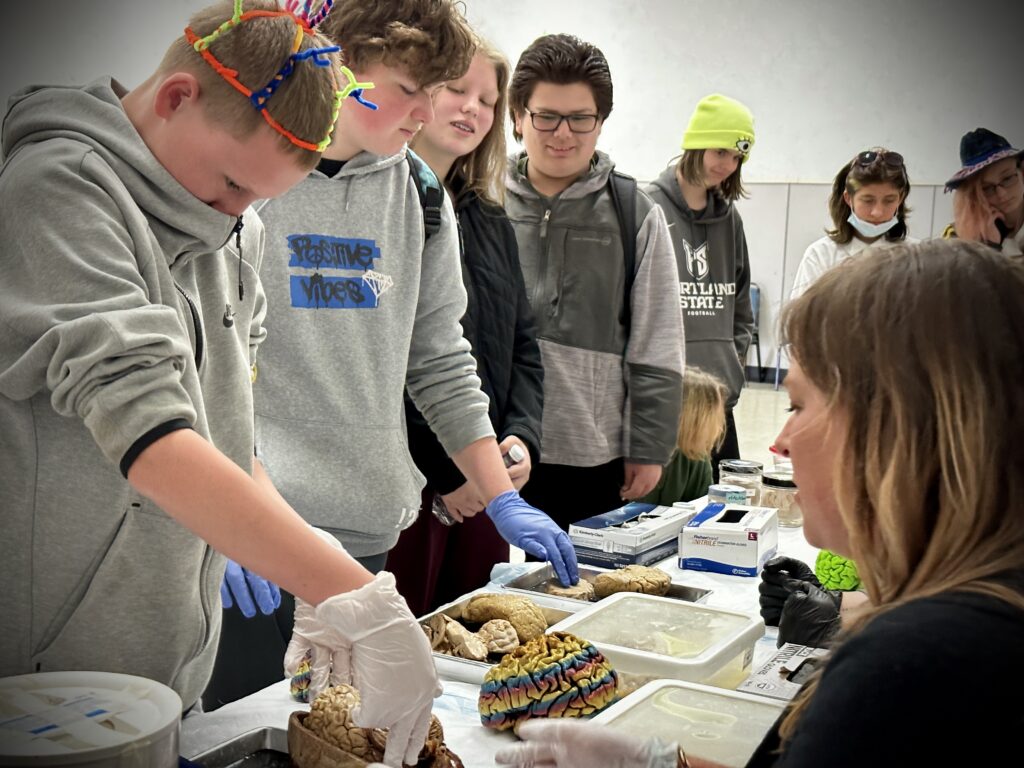
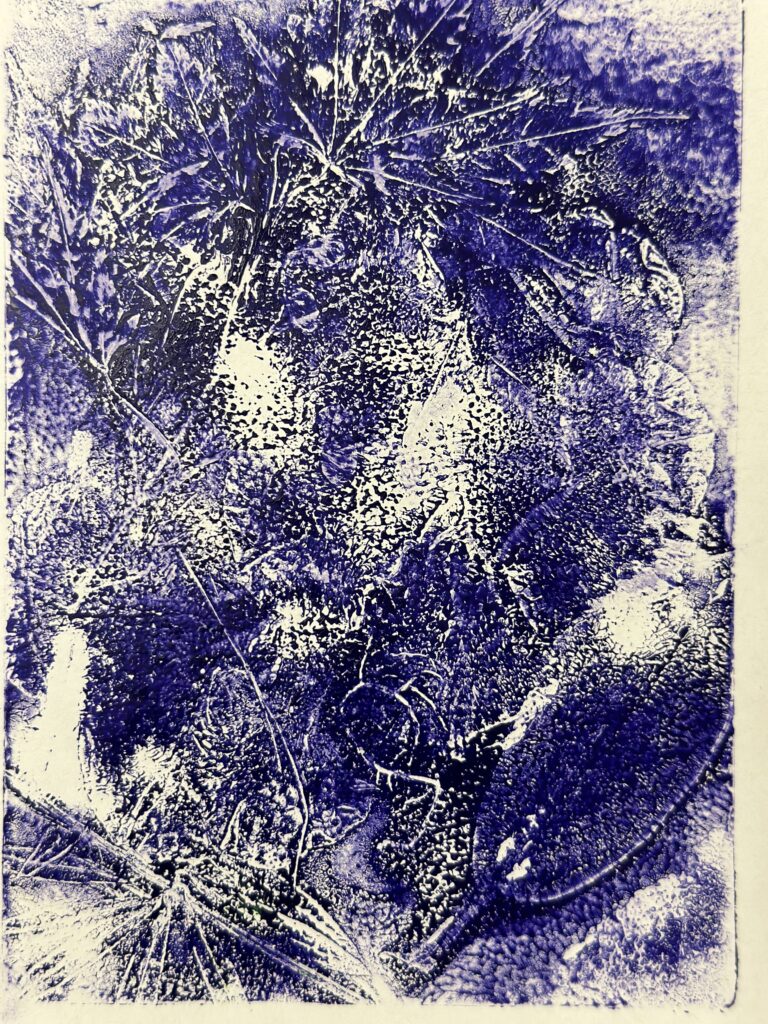
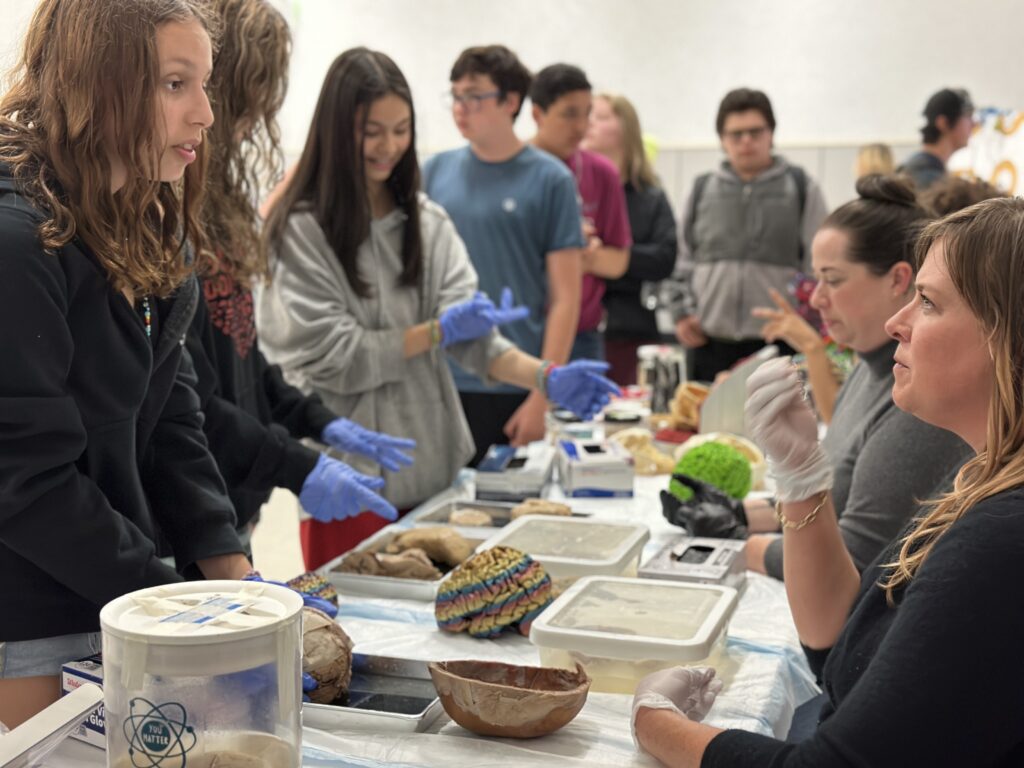
![]()
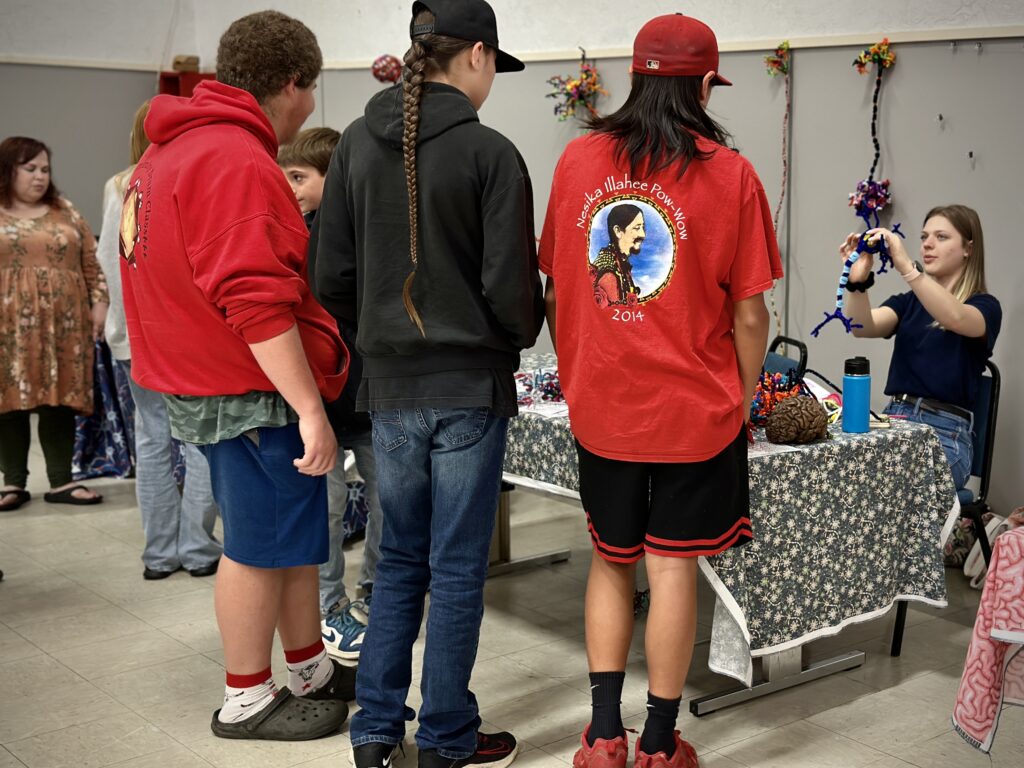
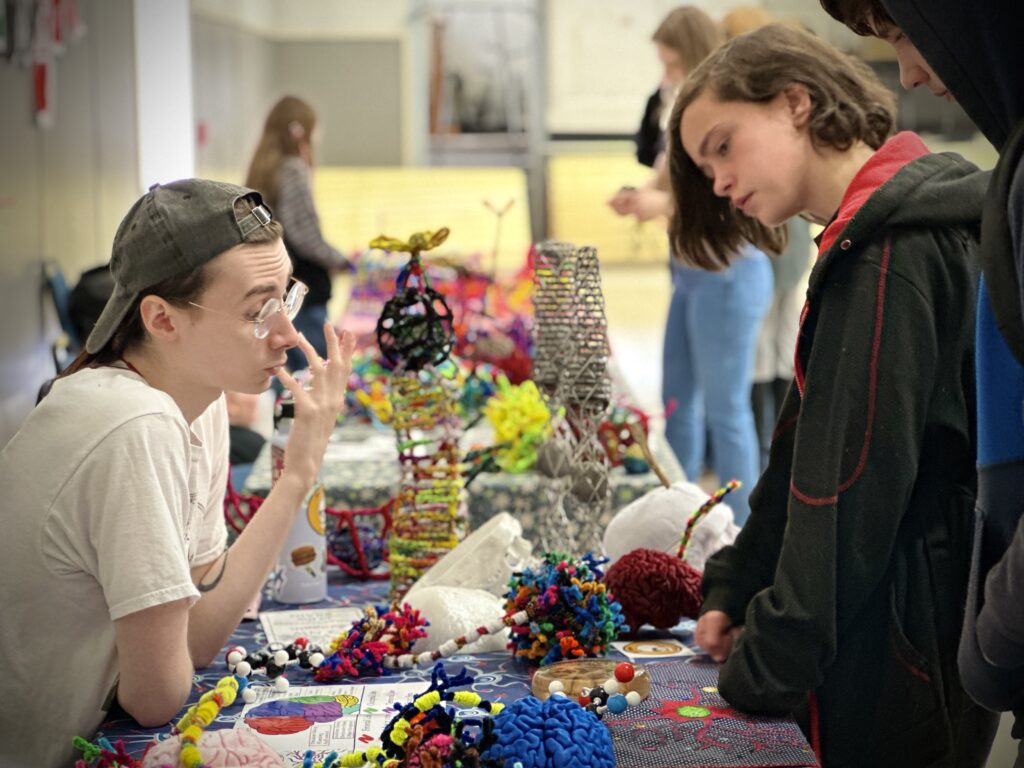


Siletz Animal Noggins: Behavior and Brains from Stories, Songs and Labs
Did you know that Native stories describe language and tool use by Crow? What do the ordeals of Little Raccoon tell us about our own struggles? What makes these tales compelling, memorable, instructive, thrilling, engaging, motivating and fun? What do they tell us about the structure and function of animal brains and behaviors – and our own?

Storytelling has a long history, and is a powerful and accepted method of teaching science. Research finds that curricula which include stories result in greater comprehension of material, longer retention of information, and a stronger personal connection between teller and listener. Similarly, music, rhythm and art-making also contribute to academic achievement, retention and brain development, while fostering a stronger sense of community.
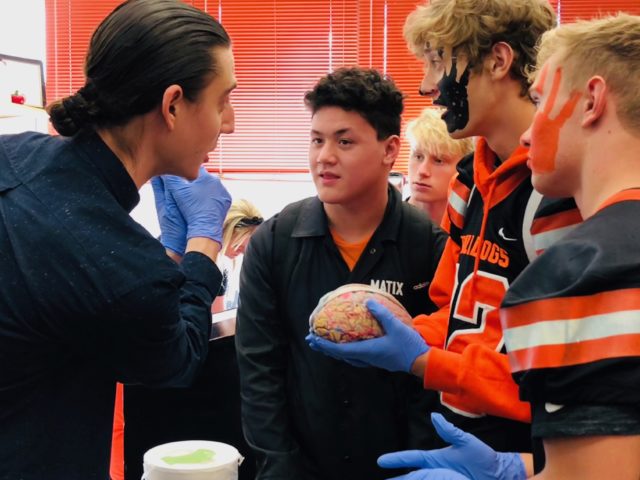
We’ve collaborated successfully with Siletz Valley School on interdisciplinary neuroscience outreach projects in the past, visiting classrooms to discuss the neuroscience of storytelling and song thanks to a 2018 grant from the Spirit Mountain Community Fund.

LEARN MORE: Until the story takes shape
LEARN MORE: Joanne Trzcinski on Synapses, Stories & Song!
We recently delivered 25 “woodpecker red” 3D printed brains to Siletz teachers and staff. Woodpeckers are important in Siletz culture and we partnered with Shashi Jain at Intel and the Portland 3D Printing Lab to provide customized teaching tools that are compelling and relevant.
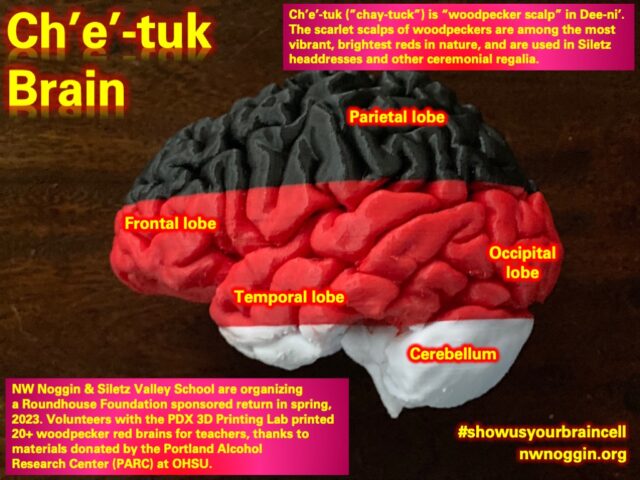
These visits and donations have had significant, lasting impact; according to a science teacher at Siletz, students advocated for opportunities to hear and play more music, they are more aware of changing circadian cycles in adolescence, and more understanding of diverse developmental experiences and how they are not alone in facing challenges.
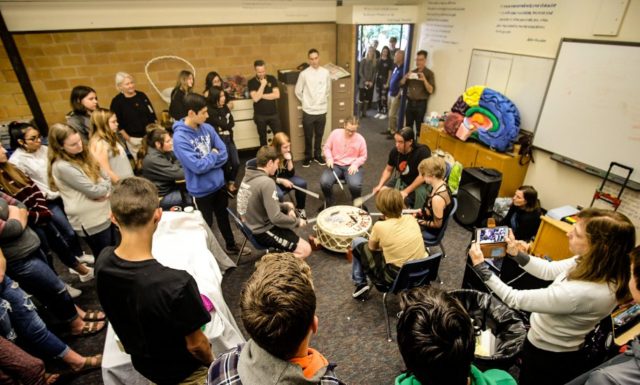
With support from the Roundhouse Foundation, the Portland Alcohol Research Center at OHSU and Siletz Valley School, we’ll bring graduate students and undergraduates studying neuroscience from Portland State University, Oregon Health & Science University and the University of Oregon back into Siletz classrooms in spring of 2023. We will also bring brain specimens (animal and human) and art projects developed in consultation with teachers at Siletz.
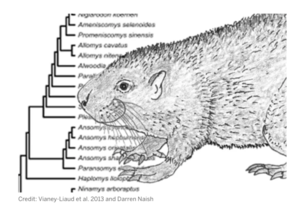
LEARN MORE: Mountain Beaver, Boomer, Sewellel
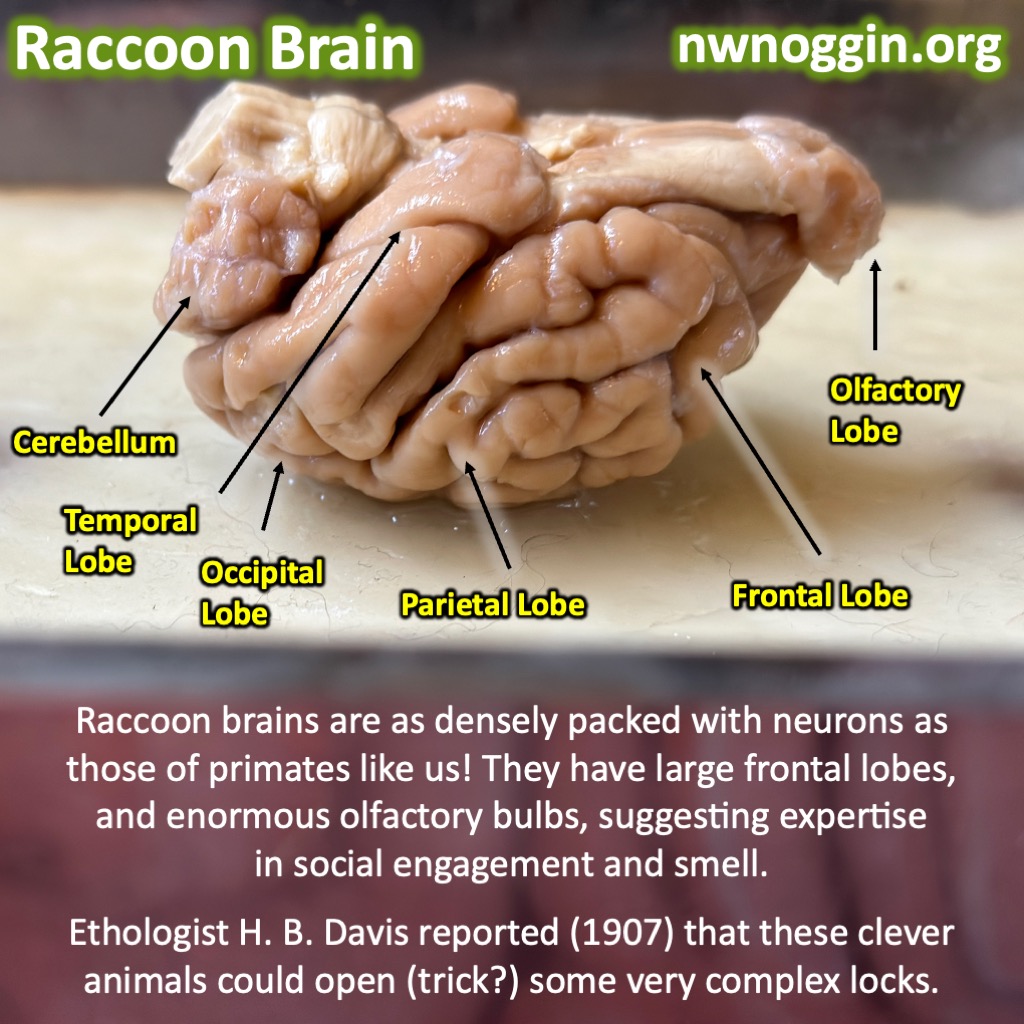
Before our visit, we’ll contribute to lesson plans focusing on culturally significant animals, including Salmon, Woodpecker, Eel, Elk, Deer, Dragonfly, Porcupine, Bear, Cougar, Octopus, Raccoon and Coyote – and the local Boomer! – and the community and brain benefits of drumming and music, integrated with the new Siletz Tribal History/Shared History curriculum. During the visit, we’ll tell stories, examine brains, make art and discuss student questions over a three day period.
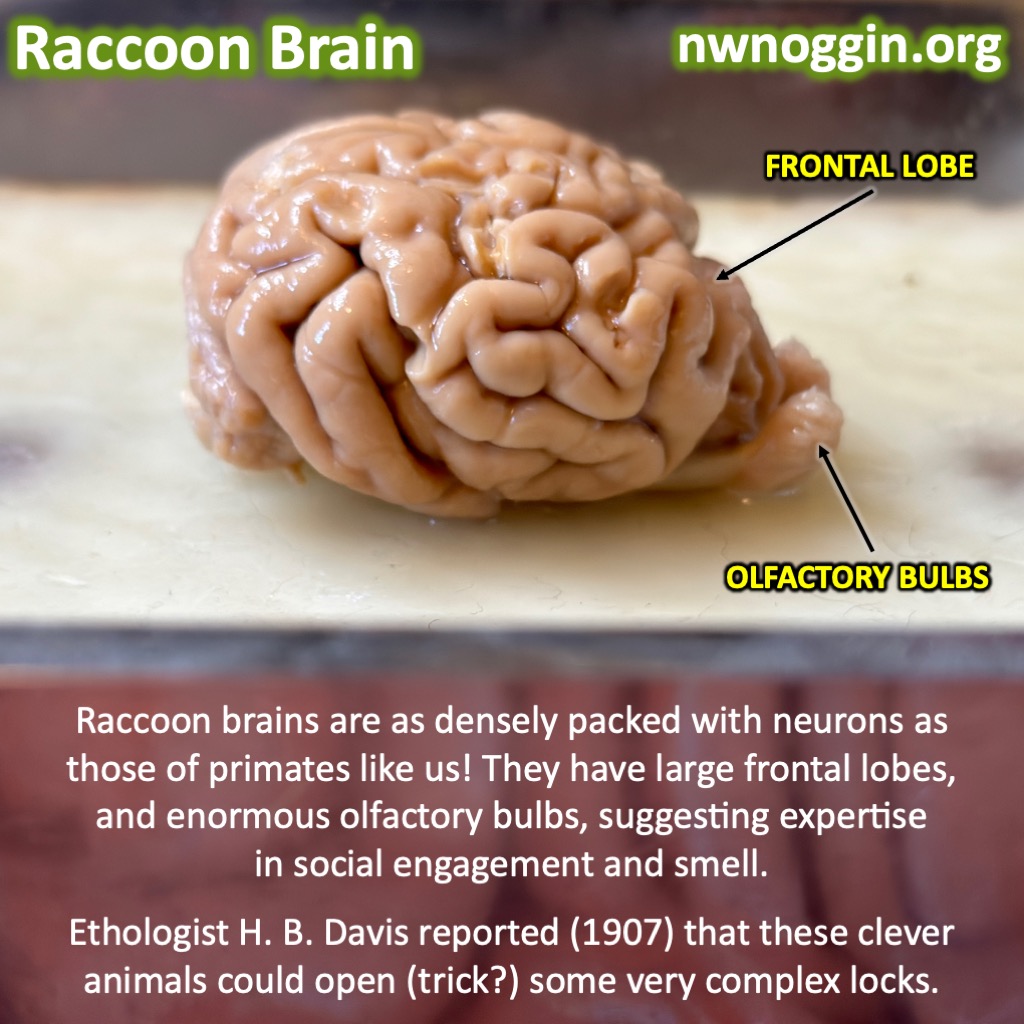
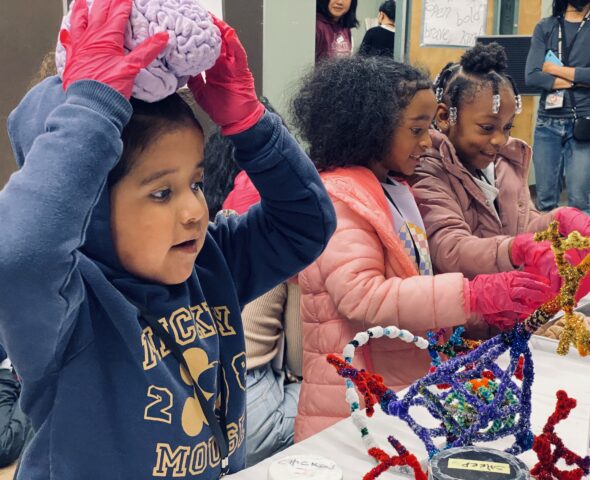
COMMITTED VOLUNTEERS
1. Bill Griesar, PSU/OHSU/NW Noggin
2. Jeff Leake, PSU/NW Noggin
3. Kanani Miyamoto, PNCA/PCC/NW Noggin
4. Denesa Lockwood, OHSU/NW Noggin
5. Kadi Rae Smith, PSU
6. Moss Pederson, PSU
7. Natalie Partipilo, PSU
8. Sami Wagner, PSU
9. Angelique Allen, University of Oregon
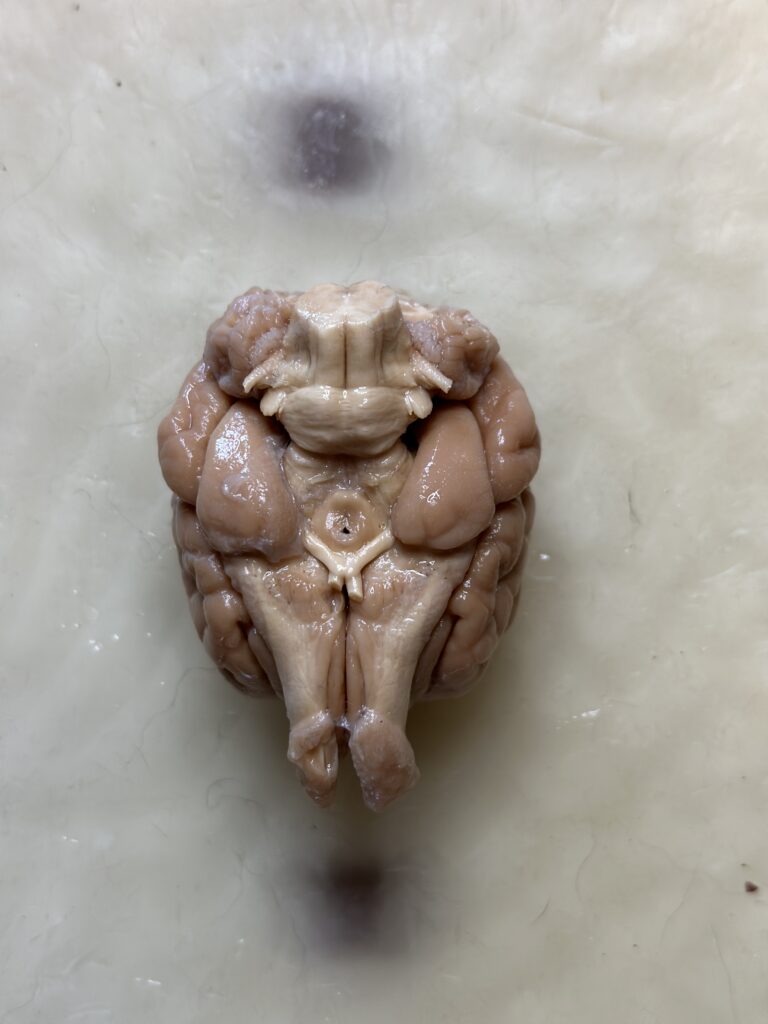
“Sabía poco, pero al menos sabía eso: que nadie habla por los demás. Que aunque queramos contar historias ajenas terminamos siempre contando la historia propia”
—Alejandro Zambra
“I knew little, but at least I knew that: that no one speaks for others. That although we want to tell other stories we always end up telling our own story
—Alejandro Zambra



